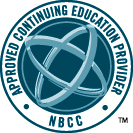
Innovations in Counseling

Counseling Transgender Clients
Transgender and transsexual clients deserve competent, culturally and contextually relevant care to help cope with institutionalized marginalization, stigmatization and oppression. This webinar will offer practical strategies for supporting mental health and wellness, from a holistic qualitative assessment process to continued psychotherapeutic care. Attention will be paid to recommendations and standards set forth by the World Professional Association for Transgender Health, with special focus on the specific counseling needs and integrative care to support wellness for transgender and transsexual persons.
During this session, participants will learn about:
- Qualitative, whole-person assessments of transgender and transsexual clients.
- Culturally and contextually relevant care for transgender and transsexual clients.
- Issues of transition.
- Wraparound care and support for transgender clients.
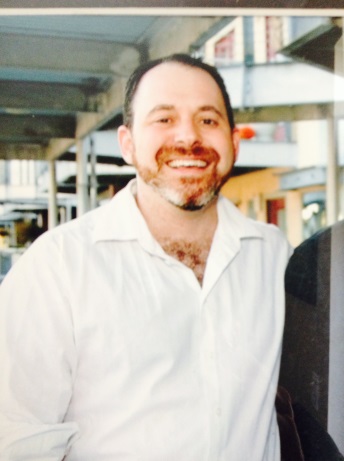
Jason Patton, Ph.D., LPC
Jason Patton received his Ph.D. in counselor education and supervision at St. Mary's University, in San Antonio, Texas. He received his M.A. in professional counseling from Texas State University, in San Marcos. He is a licensed professional counselor in Georgia. Dr. Patton engages relational cultural theory and critical pedagogy in practice and teaching. His clinical work and research interests center on clients of gender and sexual diversity, transgender body migration, trauma and the use of eye movement desensitization and reprocessing, abuse, relational concerns, depression, anxiety, and other issues.
Dr. Patton has held leadership roles for a number of professional organizations and a position on the editorial board of the Electronic Journal of Human Sexuality. He has presented at a number of national conferences, including those of the American Counseling Association, the Association for Assessment and Research in Counseling, and the Association for Counselor Education and Supervision. He has published in several professional journals and authored chapters in a number of textbooks. Dr. Patton is a core faculty member and the field experience coordinator of Walden University’s Ph.D. in counselor education and supervision program, as well as a member of the institutional review board. His passion for field experience extends from a commitment to ensuring the best care for clients, as well as advancing his students’ professional orientations—mentoring them to excel in their careers.
Q & ACounseling Military Service Members and Their Families
The recent military engagements in Afghanistan and Iraq and subsequent drawdown in forces have created unique circumstances for military service members and their families. Repeated and unpredictable deployments present a unique constellation of concerns within the military family.
Mental health and physical concerns such as post-traumatic stress and traumatic brain injury can significantly impact the well-being of our military population. Awareness of the experience of military service members and their families and the issues they encounter is imperative for the provision of quality services. This webinar will provide information related to the unique experience of military service members and their families.
Participants will receive information on the prevalent concerns and associated counseling interventions that can address the mental health needs of this population. Participants will also be directed to appropriate resources to gain further knowledge of effective strategies to support military service members and their families.
During this session, participants will:
- Learn about the unique experience of military service members and their families.
- Receive information about common concerns of this population as they relate to counseling.
- Gain exposure to counseling interventions that can support military service members and their families.
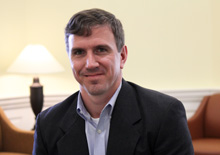
Seth C.W. Hayden, Ph.D., NCC, CCMHC, ACS, LPC
Seth C.W. Hayden is assistant professor of counseling at Wake Forest University. Dr. Hayden has provided career and personal counseling in community agencies, secondary school and university settings. Dr. Hayden’s research and clinical work focus on the career and personal development of military service members, veterans and their families. In addition, he explores the connection between career and mental health issues as well as integrated models of clinical supervision designed to facilitate positive growth in counselors’ ability to formulate interventions. Dr. Hayden is past-president of the Military and Government Counseling Association and chair of the research committee for the National Career Development Association, both divisions of the American Counseling Association.
Dr. Hayden received his Bachelor of Arts in psychology, Bachelor of Science in education, and Master of Science in counseling from the University of Memphis. He completed his doctoral work in counselor education and supervision at the University of Virginia. Dr. Hayden is a licensed professional counselor in Virginia and is credentialed as a National Certified Counselor (NCC) and a Certified Clinical Mental Health Counselor (CCMHC) through NBCC. He also holds the Approved Clinical Supervisor (ACS) from the Center for Credentialing & Education.
Q & ACounseling Same-Sex Couples
This webinar will present participants with interventions to use with same-sex/same-gender couples. It will be presented from an empowerment model, not a deficit model. Participants will be educated about terminology relevant to same-sex/same-gender couples. The presenter will discuss the importance of building a strong empathic bond with the couple, being careful not to belittle the relationship, as well as ways to facilitate communication in the relationship. The presenter will also discuss the impact of the legalization of same-sex marriage, premarital counseling, and statistical data regarding same-sex/same-gender marriage. The presentation will cover adoption, sexual roles and infectious diseases.
During this session, participants will learn about:
- How various characteristics (length of relationship, age of the people involved, family dynamics, sexual roles, etc.) impact same-sex/same-gender couples.
- The importance of empathy, understanding and encouragement in the counselor/client relationship when working with same-sex/same-gender couples.
- The impact of marriage and children on same-sex/same-gender couples.
- The impact of infectious diseases on same-sex/same-gender couples.
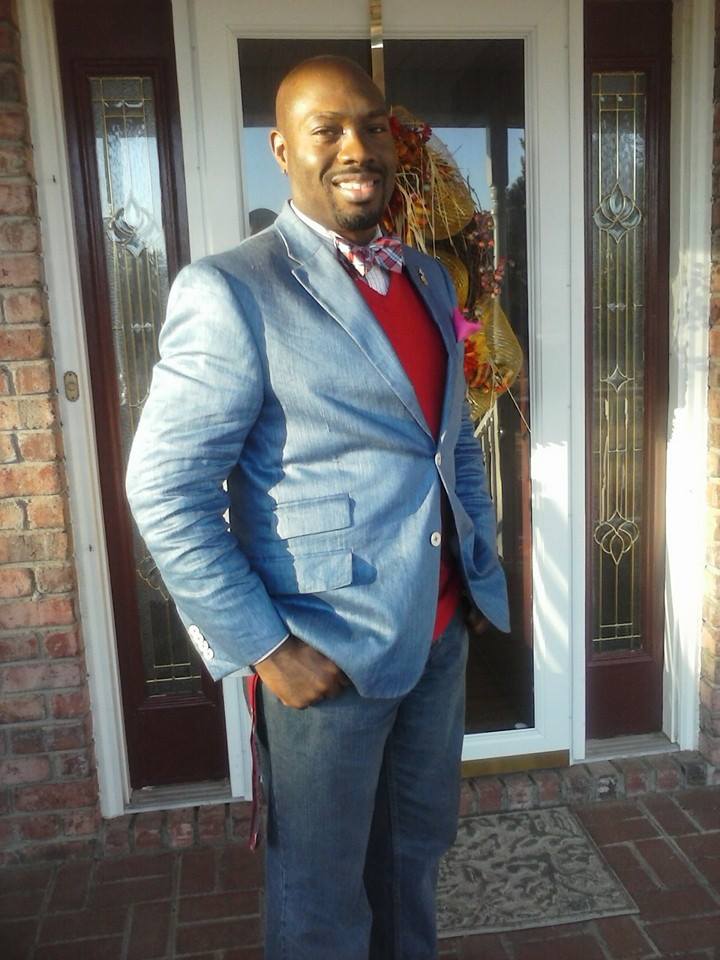
David Julius Ford Jr., Ph.D., NCC, ACS, LPC
David Julius Ford Jr. has a B.A. in psychology and an M.A. in clinical mental health counseling, both from Wake Forest University. In May 2014, he earned his Ph.D. in education with a concentration in counselor education and supervision at Old Dominion University. Dr. Ford is a licensed professional counselor in North Carolina and is also seeking licensure in Virginia. He is a National Certified Counselor (NCC) and Approved Clinical Supervisor (ACS). Dr. Ford recently completed his first year as an assistant professor of counselor education in the Department of Graduate Psychology at James Madison University, where he serves as the faculty adviser to the Nu Lambda chapter of Kappa Alpha Psi Fraternity, Inc., and the Contemporary Gospel Singers of JMU.
Dr. Ford’s professional interests are Greek life; multicultural issues; college students; African-American males in higher education; addictions counseling; supervision; group work; qualitative research; the lesbian, gay, bisexual, transgender, queer, questioning, intersex and asexual (LGBTQQIA) community; and persons living with HIV/AIDS. He has experience as an instructor for undergraduate human services courses and has taught graduate course on career counseling, testing and assessment, clinical mental health counseling, and group counseling. He has also taught a doctoral-level dissertation course. He is one of 24 inaugural fellows of the NBCC Minority Fellowship Program. Dr. Ford is a classically trained pianist and is a proud and active member of Kappa Alpha Psi Fraternity, Inc. As an undergraduate, he had the privilege of taking a class taught by the late Dr. Maya Angelou. Dr. Ford currently lives in Harrisonburg, Virginia.
Q & ATrauma Counseling: Helping Clients Cope With War and Natural Disaster—Part 3: Peshawar Trauma Project (A Case Study)
In events such as war and natural disaster, affected individuals can experience an intense feeling of impotence and loss of self-efficacy. The resulting trauma can have both acute and chronic implications. If the triggering events, as in the case of war, are ongoing, it further intensifies the traumatic experience. Complicated grief, suicidal ideation, substance abuse, elevated stress response, anger and depression are some potential co-occurring presenting complaints.
What are some ways that therapists can make a meaningful difference in the lives of those who live with war as an everyday reality? This three-part webinar series will discuss therapeutic interventions that are effective in building emotional resilience and providing relief when working with individuals who find themselves inextricably caught in locations affected by war or natural disaster.
Part 3 of this three-part webinar will discuss a case study. The Peshawar trauma project was implemented singlehandedly in the aftermath of the December 16, 2014, Taliban attack on a school in Peshawar, Pakistan. The attack resulted in the brutal execution of 152 people, 132 of whom were children ages 7–17. During this session, participants will:
- Learn how crowdfunding and personal fundraising efforts were utilized to finance the project.
- Learn more about the implementation of the project from start to finish.
- Learn about the in-vivo method of service delivery and training delivery that allowed for maximum use of limited time and resources.
- Learn about therapeutic methods used and therapeutic outcomes during the project.
- Learn about the future direction of this and other projects.

Shahnaz Khawaja M.A., NCC, LPC, LCASA
Shahnaz Khawaja has a master’s degree in mental health counseling from Wake Forest University. At present, she holds the position of senior program officer for the NBCC Foundation. Before coming to NBCC, she spent several years working in addictions counseling at Insight Human Services, and as the director of counseling services at Greensboro College. Ms. Khawaja also maintains a private counseling practice.
Prior to earning her graduate degree, Ms. Khawaja served on the board of the American Red Cross High Point/Thomasville chapter and as a member of the ethics committee for the Thomasville Medical Center. She currently serves as a human relations commissioner for the city of High Point and the public relations committee chair for the Association for Humanistic Counseling. She is a National Certified Counselor, and a licensed professional counselor and licensed clinical addictions specialist associate in the state of North Carolina.
Ms. Khawaja was born in Uganda, East Africa, and has travelled extensively. She continues to do relief work internationally. She moved to the United States in 1998 and has lived in High Point, North Carolina, since 2001.
Q & ATrauma Counseling: Helping Clients Cope With War and Natural Disaster—Part 2: Building Emotional Resilience
In events such as war and natural disaster, affected individuals can experience an intense feeling of impotence and loss of self-efficacy. The resulting trauma can have both acute and chronic implications. If the triggering events, as in the case of war, are ongoing, it further intensifies the traumatic experience. Complicated grief, suicidal ideation, substance abuse, elevated stress response, anger and depression are some potential co-occurring presenting complaints.
What are some ways that therapists can make a meaningful difference in the lives of those who live with war as an everyday reality? This three-part webinar series will discuss therapeutic interventions that are effective in building emotional resilience and providing relief when working with individuals who find themselves inextricably caught in locations affected by war or natural disaster.
Part 2 of this three-part webinar will focus on building emotional resilience. During this session, participants will:
- Learn how to help clients identify inner strengths.
- Learn how to employ culturally specific belief systems to enhance emotional strength and resiliency.
- Learn how to utilize an eclectic mix of therapeutic interventions to generate new neural pathways and build neural plasticity, leading to increased emotional resilience.

Shahnaz Khawaja M.A., NCC, LPC, LCASA
Shahnaz Khawaja has a master’s degree in mental health counseling from Wake Forest University. At present, she holds the position of senior program officer for the NBCC Foundation. Before coming to NBCC, she spent several years working in addictions counseling at Insight Human Services, and as the director of counseling services at Greensboro College. Ms. Khawaja also maintains a private counseling practice.
Prior to earning her graduate degree, Ms. Khawaja served on the board of the American Red Cross High Point/Thomasville chapter and as a member of the ethics committee for the Thomasville Medical Center. She currently serves as a human relations commissioner for the city of High Point and the public relations committee chair for the Association for Humanistic Counseling. She is a National Certified Counselor, and a licensed professional counselor and licensed clinical addictions specialist associate in the state of North Carolina.
Ms. Khawaja was born in Uganda, East Africa, and has travelled extensively. She continues to do relief work internationally. She moved to the United States in 1998 and has lived in High Point, North Carolina, since 2001.
Q & ATrauma Counseling: Helping Clients Cope With War and Natural Disaster—Part 1: Brief Interventions
In events such as war and natural disaster, affected individuals can experience an intense feeling of impotence and loss of self-efficacy. The resulting trauma can have both acute and chronic implications. If the triggering events, as in the case of war, are ongoing, it further intensifies the traumatic experience. Complicated grief, suicidal ideation, substance abuse, elevated stress response, anger and depression are some potential co-occurring presenting complaints.
What are some ways that therapists can make a meaningful difference in the lives of those who live with war as an everyday reality? This three-part webinar series will discuss therapeutic interventions that are effective in building emotional resilience and providing relief when working with individuals who find themselves inextricably caught in locations affected by war or natural disaster.
Part 1 of this three-part webinar will focus on brief interventions in trauma counseling. During this session, participants will:
- Learn about the stress response and its different stages.
- Learn how to assess a client for stress response.
- Learn about basic scaling during therapeutic intervention.
- Learn how to effectively deactivate stress response.
- Learn to identify when a client is past the stress response state and in a learning state.
- Learn several brief interventions effective in trauma counseling.

Shahnaz Khawaja M.A., NCC, LPC, LCASA
Shahnaz Khawaja has a master’s degree in mental health counseling from Wake Forest University. At present, she holds the position of senior program officer for the NBCC Foundation. Before coming to NBCC, she spent several years working in addictions counseling at Insight Human Services, and as the director of counseling services at Greensboro College. Ms. Khawaja also maintains a private counseling practice.
Prior to earning her graduate degree, Ms. Khawaja served on the board of the American Red Cross High Point/Thomasville chapter and as a member of the ethics committee for the Thomasville Medical Center. She currently serves as a human relations commissioner for the city of High Point and the public relations committee chair for the Association for Humanistic Counseling. She is a National Certified Counselor, and a licensed professional counselor and licensed clinical addictions specialist associate in the state of North Carolina.
Ms. Khawaja was born in Uganda, East Africa, and has travelled extensively. She continues to do relief work internationally. She moved to the United States in 1998 and has lived in High Point, North Carolina, since 2001.
Group and Cultural Dynamics of Suicide
How can a counselor identify the different group or cultural dynamics that can influence a client at risk for suicide? This webinar will demonstrate how to determine suicidal lethality and possible risk to others within these group dynamics. Participants will also become more aware of professional bias and its effect on their ability to provide a suicide intervention. The goal of the webinar is to increase overall awareness of group and cultural influence and its relationship to success in treatment, prevention and intervention of a suicidal client.
During this session, participants will:
- Learn how to identify different groups and their influence on a client at risk for suicide.
- Assess key significant characteristics of specific group dynamics and their influence on suicidal lethality and possible eminent danger to the client or others.
- Increase personal awareness of professional group bias and how it can affect the ability to help a client at risk for suicide.
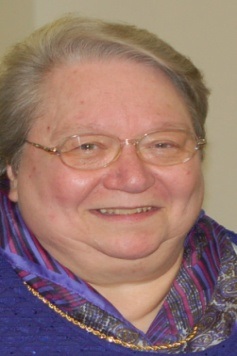
Eleanor Hamm, M.A., NCC, LPC
Eleanor Hamm worked for 40 years as the executive director of the Pueblo Suicide Prevention Center, in Colorado, during which time she lectured and trained professionals on suicide prevention and crisis intervention on a state, national and international level. She was a national accreditation examiner for the American Association of Suicidology for 30 years and one of the founding developers of the Colorado State Suicide Coalition. Ms. Hamm is a licensed professional counselor and National Certified Counselor. She holds a master’s in counseling from Adams State University in Alamosa, Colorado.
Multicultural Counseling Competencies
The intent of this one-hour webinar is to reintroduce the social justice aspects of the Multicultural Counseling Competencies of the Association for Multicultural Counseling and Development (AMCD). Section E.5.b of the American Counseling Association (ACA) Code of Ethics states that counselors have an ethical obligation to provide multiculturally competent services. Counselors are also ethically bound to advocate with and on behalf of clients at the individual, group, institutional and societal levels should such situations arise, as stated in Section A.7.a. Therefore, multiculturally competent counseling must be inclusive of social justice. It must provide equal access and opportunity, be inclusive, and remove individual and systemic barriers to fair mental health services.
During this session, participants will:
- Clearly connect social justice with multicultural competence.
- Discuss critical thinking skills and how these skills are necessary to analyze inequities.
- Develop ways to incorporate social justice interventions into one’s practice.
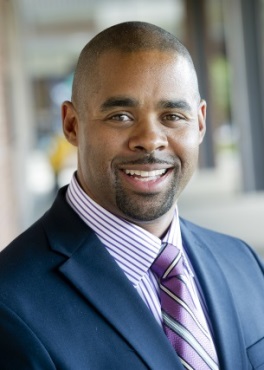
Michael Brooks, Ph.D., NCC
Michael Brooks is associate professor of counselor education at North Carolina A&T State University in Greensboro. Dr. Brooks earned a master’s and doctoral degree in counselor education from the University of Central Florida in Orlando. He has presented in the areas of multiculturalism and multicultural competency, ethics relating to diversity, school counselor effectiveness, professional development school models, and mentoring at several regional, national and international conferences. Dr. Brooks has also served on nationally televised panels to discuss HIV and substance abuse.Dr. Brooks has an extensive publication record in several counseling flagship journals, as well as publications in multicultural education and student affairs journals. He has one edited textbook, on black male success, and several authored book chapters. Prior to a beginning a career in higher education, Dr. Brooks worked as a county government mental health counselor. He has been the president of the Association for Multicultural Counseling and Development and the Alabama Association for Counselor Education and Supervision.
NBCC Foundation has been approved by NBCC as an Approved Continuing Education Provider, ACEP No. 805. Programs that do not qualify for NBCC credit are clearly identified. NBCC Foundation is solely responsible for all aspects of the programs.
Each state sets its own requirements for licensure, including continuing education requirements to maintain licensure. Questions about CE requirements for state licensure should be directed to your state board. You can find their contact information on our state board directory.
